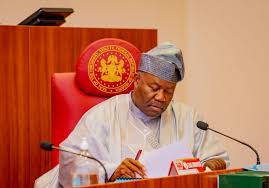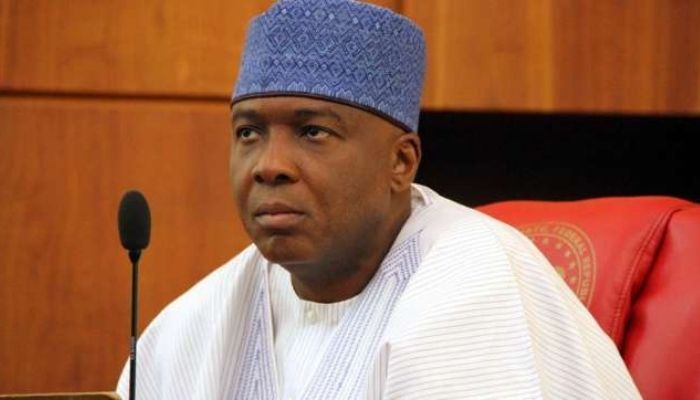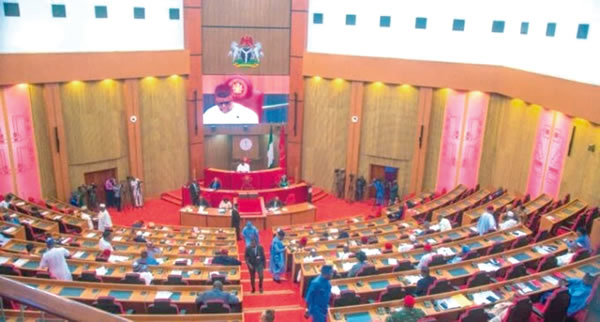***Adjourns Till January 14
Barely 24 hours after President Bola Tinubu presented the 2025 Appropriation Bill, the Senate has passed the piece of legislation for second reading.
The Senate had earlier debated the 2025 Appropriation Bill after it was mentioned for first reading focusing on critical issues of security, economic growth, and effective implementation of the ₦49.7 trillion budget.
Following robust discussions, the bill was passed for a second reading and referred to the Senate Committee on Appropriation for detailed legislative scrutiny.
During the debate, lawmakers highlighted the importance of security as a prerequisite for achieving the budget’s goals. Senator Orji Uzor Kalu emphasized the need to inject more funds into the manufacturing sector and development institutions like the Bank of Industry to stimulate economic growth.

Similarly, Senator Francis Adefadausi (Osun East) stressed that the 24% allocation for defense would be ineffective without tackling insecurity. He added that improved security would also boost agricultural productivity.
In agreement, Senator Diket Plang (Plateau Central) stated, “Without security, all items listed will not work, but with security in place, agriculture will enjoy a bumper harvest.”
Concerns about regional inclusiveness were also raised. Senator Victor Umeh (Anambra Central) decried the exclusion of the Port Harcourt-Maiduguri Eastern railway line from the budget and urged its inclusion during committee review. Likewise, other lawmakers flagged the omission of the South-South Development Commission and cautioned against fiscal policies that could escalate inflation.
Senator Ndubueze Patrick (Imo North) advocated for market-determined exchange rates instead of the proposed ₦1,500 naira-to-dollar peg, a position supported by Senator Sadie Usman (Kwara North), who called for prudent government spending.
The Senate President, Godswill Akpabio, commended the robust debate and announced the adjournment of plenary for the Christmas and New Year holidays. The lawmakers will reconvene on January 14, 2025, to continue legislative activities.
The 2025 budget, titled “Budget of Restoration: Securing Peace, Rebuilding Prosperity,” aims to stabilize the economy, improve education, enhance infrastructure, and reduce inflation.
Senate Approves 2025 Budget for Second Reading
The Senate Leader Michael Opeyemi Bamidele (Ekiti Central), while leading the debate highlighted the ₦49.74 trillion budget’s potential to address Nigeria’s economic and infrastructural challenges.
Dubbed the “Budget of Restoration: Securing Peace, Rebuilding Prosperity,” the proposal represents a nominal increase of 74.18% from the previous year, though it contracts by 23.22% in dollar terms due to the weakened naira.
Key projections include a $75 oil price benchmark, 2.06 million barrels daily production, and a ₦1,500 naira-to-dollar exchange rate. Sectoral allocations prioritize defense (₦4.91 trillion), infrastructure (₦4.06 trillion), education (₦3.52 trillion), and debt servicing (₦15.81 trillion).
Senator Bamidele praised the administration’s focus on stabilizing inflation, improving security, and boosting industrial output, describing the proposals as a bold step toward economic recovery.
The bill was referred to the Appropriation Committee for further legislative review.




